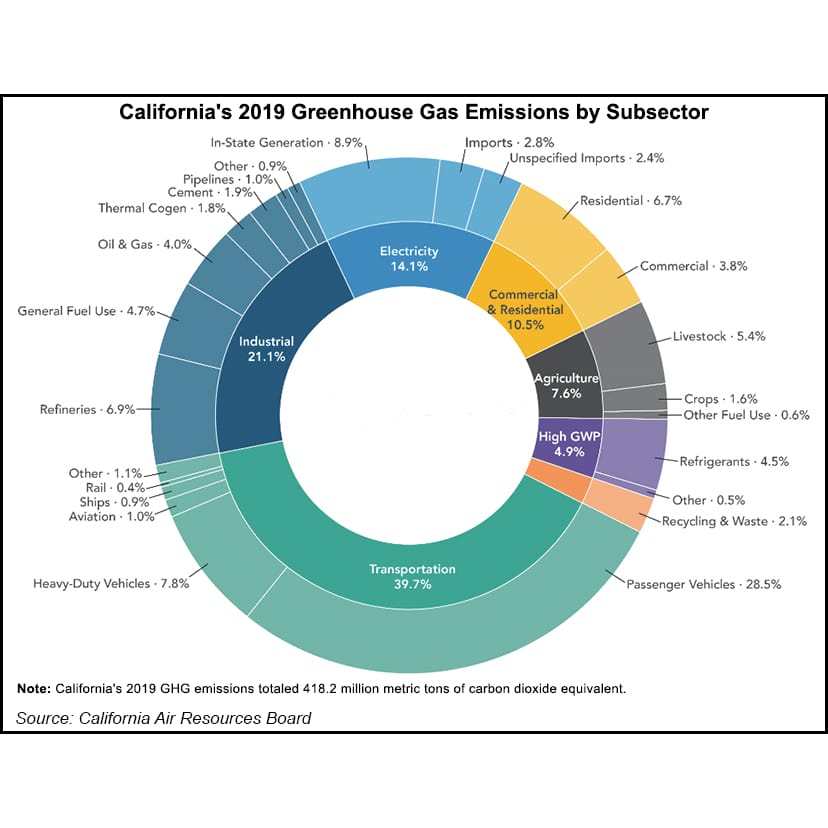- Grid Brief
- Posts
- Biden Vetoes ESG Ban // Texas PUC Exceeded Authority During Uri // UK Strikes Hammer North Sea Production
Biden Vetoes ESG Ban // Texas PUC Exceeded Authority During Uri // UK Strikes Hammer North Sea Production
Biden Vetoes ESG Ban
President Biden issued his first veto on Monday, rejecting a Republican effort to stop investment managers from considering ESG factors when making decisions.
“The Senate passed the resolution this month by a vote of 50 to 46 after two Democrats, Senators Jon Tester of Montana and Joe Manchin III of West Virginia, joined every Republican,” reports the New York Times. “The vote, which came the day after the House approved the measure on a mostly party-line vote, cleared the measure to be sent to the White House, where Mr. Biden’s advisers were expecting him to veto it.”
The president defended his veto on Twitter, accusing far-right Republicans of imposing their views on the rest of the country.
“This bill would risk your retirement savings by making it illegal to consider risk factors MAGA House Republicans don’t like,” the president said, referring to the wing of the party that supports former President Donald J. Trump. “Your plan manager should be able to protect your hard-earned savings — whether Rep. Marjorie Taylor Greene likes it or not.”
Biden did not defend ESG on its merits.
Republicans have argued that the ESG rule will spur disinvestment in fossil fuel companies and harm tax revenue and job growth in their states. Democratic Senator Joe Manchin, who voted for the resolution, agrees with the Republican assessment.
“This administration continues to prioritize their radical policy agenda over the economic, energy and national security needs of our country, and it is absolutely infuriating,” Manchin said.
More than $18 trillion is held in funds that abide by ESG principles.
Texas PUC Exceeded Authority During Uri
According to a Texas appeals court, the Public Utility Commission of Texas exceeded its authority by setting electricity prices at $9,000/MWh for four days during Winter Storm Uri.
The PUCT exceeded its power by eliminating competition entirely in extraordinary circumstances, the court said.
“In extreme circumstances under extraordinary pressure, the commission exceeded its power by eliminating competition entirely,” the court said. “For four days under the orders, the minimum price was the same as the maximum price by operation of executive fiat.”
“Typical market clearing prices in the Electric Reliability Council of Texas market can be around $30/MWh, the appeals court noted,” reports Utility Dive. “During Uri, prices reached $1,200/MWh but regulators wanted more generation to come online.”
The lawsuit challenging the PUCT's orders was filed by Luminant Energy, a subsidiary of Vistra Energy. ERCOT independent market monitor Potomac Economics estimated that raising prices to their $9,000 cap and holding them at that level longer than necessary cost consumers $16 billion.
“Our decision in this appeal may have very real material consequences for all involved,” the court said.
UK Strikes Hammer North Sea Production
The UK North Sea could see dozens of its oil and gas platforms come to a halt in the weeks to come. Five contractor companies and 1,400 offshore workers have voted to strike, demanding better pay and working conditions.
“The industrial action is expected to hit platforms of major companies operating on the UK Continental Shelf including BP, Shell, TotalEnergies, CNRI, EnQuest, Harbour Energy, and Ithaca Energy, the union said in a statement,” reports Oilprice.com. “The prospective action includes electrical, production, and mechanical technicians in addition to deck crew, scaffolders crane operators, pipefitters, platers, and riggers working for Bilfinger UK Limited, Stork construction, Petrofac Facilities Management, the Wood Group UK Limited, and Sparrows Offshore Services, according to the union. Offshore workers at those five companies have overwhelmingly voted in recent days to begin strike action as they demand a better deal on jobs, pay, and conditions.”
According to the Unite union, strike actions will hit various offshore oil and gas platforms in the UK from March 29 to June 7 in waves of 24, 48, and 72-hour stoppages.
“Oil and gas companies have been given free rein to enjoy massive windfall profits in the North Sea; drilling concessions are effectively licences to print money,” Unite general secretary Sharon Graham said. “1,400 offshore workers are now set to take strike action against these employers who are raking it but refusing to give them a fair share of the pie. This will create a tsunami of industrial unrest in the offshore sector. Unite will support these members every step of the way in their fight for better jobs, pay and conditions.”
Like what you’re reading? Click the button to get Grid Brief right in your inbox!
Conversation Starters
US oil exports to Europe hit a record high this month. “U.S. crude exports to Europe have hit a record 2.1 million barrels per day on average so far this month, spurred by wide discounts to the global benchmark and weaker oil demand by U.S. refineries,” reports Reuters. “Record exports to Europe and China this month reflect the rise of United States in crude oil trade and solidifies its role supplying Europe following Russia's invasion of Ukraine.”
A federal judge froze the Biden administration’s new “waters of the US” rule in two states. “A federal judge in Texas has put the Biden administration’s signature water regulation on hold in two states amid a mounting push from White House critics, who want the rule stalled until a much-anticipated Supreme Court ruling lands later this year,” reports E&E News. “Judge Jeffrey Brown on Sunday handed the states of Texas and Idaho a victory in their fight to head off the new ‘waters of the United States,’ or WOTUS, rule. Two separate lawsuits in the U.S. District Court for the Southern District of Texas had argued that EPA and the Army Corps of Engineers should have to wait for the upcoming Sackett v. EPA decision before implementing the new regulation. One was brought by state officials and one by industry members.”
The California Bay Area plans to phase out natural gas furnaces and water heaters by 2027. “In a near-unanimous vote, the Bay Area Air Quality Management District (BAAQMD) on Wednesday amended regulations to eliminate nitrogen oxide (NOx) from residential and commercial buildings,” reports Natural Gas Intelligence. “The 1.8 million water heaters and furnaces in the Bay Area significantly impact our air quality, resulting in dozens of early deaths and a wide range of health impacts, particularly in communities of color,” BAAQMD’s Philip Fine, executive officer, said. “This groundbreaking regulation will phase out the most polluting appliances in homes and businesses to protect Bay Area residents from the harmful air pollution they cause.”

Nuclear Barbarians: Come On! Feel the Illinoise! ft. Alan Medsker
Crom’s Blessing

